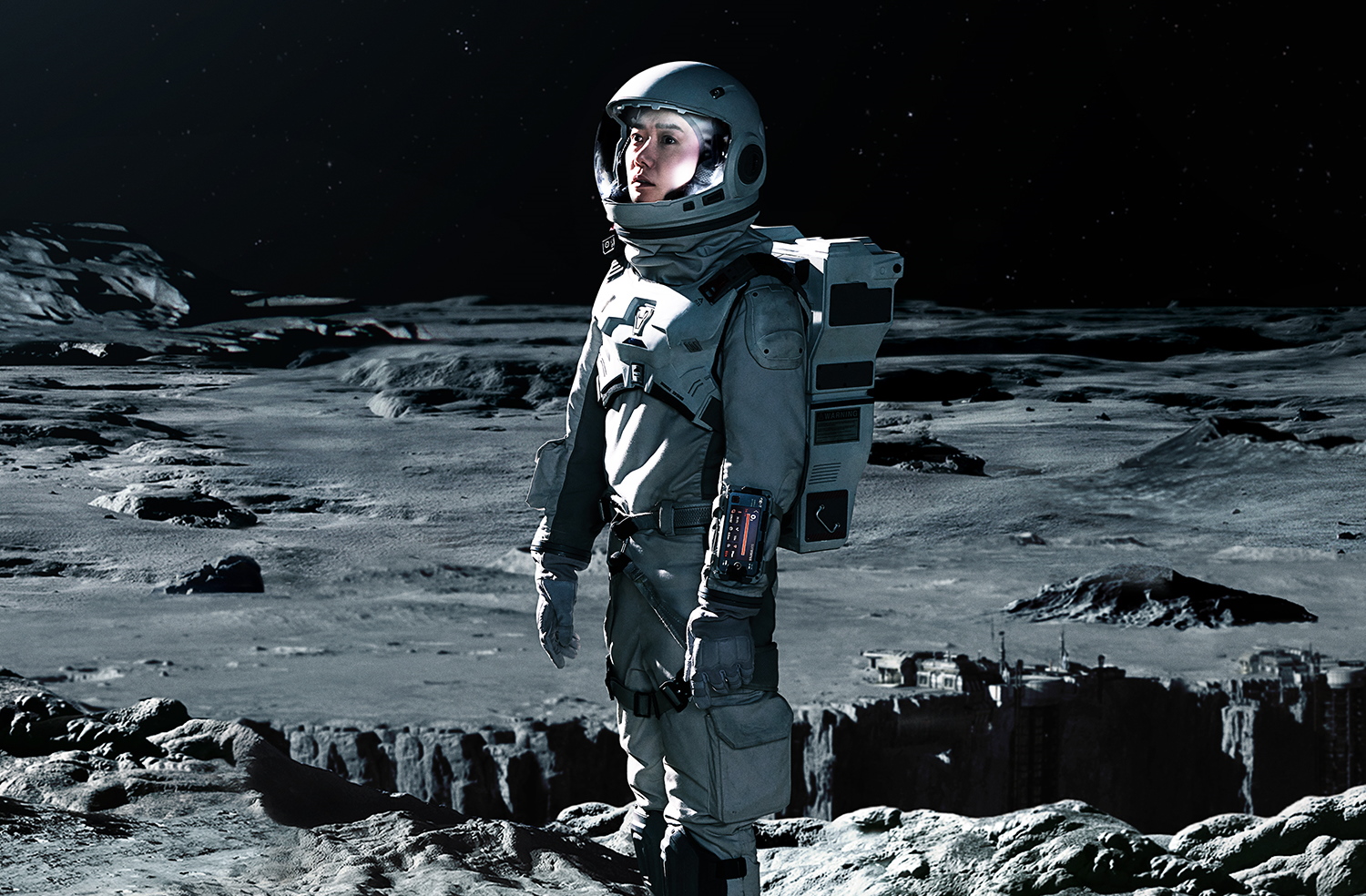An enthralling, suspenseful thriller that plays out in an abandoned maze-like lunar station and back on a resource-depleted earth, The Silent Sea (Netflix 2021) is the first K-drama to be set largely in space. The writer is Park Eun-kyo (The Great Battle): this is her first TV series, an adaptation of director Choi Hang-yong’s short film The Sea of Tranquility—made in 2014 when he was still at film school. (Executive producer for the series is actor Jung Woo-sung of Steel Rain.) Choi Hang-yong has described the story as a tale of survival—both for the crew undertaking the mission, and for humanity.
Soulful lead Bae Doona (Stranger, Kingdom) appeared in the big-budget Cloud Atlas (2012), and realised that a Korean television project set in space would need a very different approach. In an interview in the Korea Herald, she said: “I thought the director’s work was tackling the sci-fi genre in a very smart and unique way. Instead of chasing fascinating graphics and scientific technologies, the director led the viewers to be absorbed in the story with the characters’ psychological state and unique setting.”
Bae Doona plays Dr Song Ji-an, once a “big name astrobiologist” who is lured back from her new job at an environmental institute to take part in a lunar mission. She is expert in conveying both calm intelligence and intensity, and it’s not surprising to see Bae Doona in yet another role where she’s the heart of the ensemble. In The Silent Sea Song Ji-an is an outsider, a straight talker who makes little attempt to befriend the rest of the crew. She even tells friendly Dr Hong Ga-young (Kim Sun-young of Crash Landing on You) not to address her informally. At work we see her behind glass sitting next to a gigantic wounded tiger, her empathy palpable; she’s also illicitly feeding a dog (all pets are now illegal). Kim Jae-sun (Heo Sung-tae of Squid Game), who is high-up in national resources and of ambiguous morality, describes her as a typical scientist: “Smart, boring, conceited and condescending.”
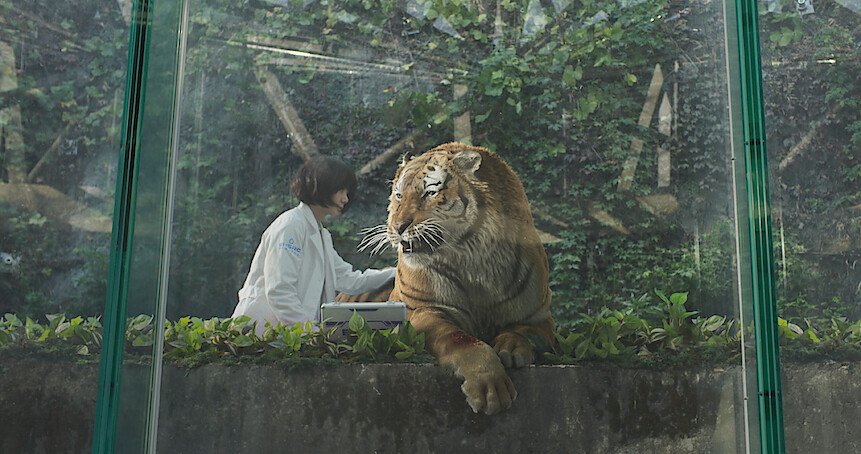
The series opens with the grim, ashy landscape of the moon after the craft’s crash landing—Ji-an hangs upside down and the craft is balanced on a precipice, its oxygen running out and systems destroyed—but, as the credit sequence reveals, water is at the heart of this quest. Earth is in climate crisis and water is an expensive, fast-disappearing commodity. In Korea, Seoul is brown and desiccated, the Han River almost dry. Water is rationed, and only those with higher status (and money) can access more. In the streets, people protest the “Water Supply Access Regulation” or line up at what looks like a petrol station to fill vessels, their “membership” card levels determining the quantity they’re permitted.
“There’s nothing in Space,” she tells Kim Jae-sun, but allows herself to be co-opted onto the mission to the now-closed Balhae Lunar Station. He knows the personal angle: her older sister—also a scientist—died five years ago in the mysterious Balhae Station accident, when more than a hundred people were killed. Ji-an’s compensation was permanent gold status with water, the highest level.
A radiation leak was blamed for the Balhae disaster, and the station is about to be closed forever. But first a small team must make the journey there to retrieve a mystery sample—so mysterious that Director Choi, head of Korea’s Space and Aeronautics division (Gil Hae-yeon of Something in the Rain) says she has no idea what it might be.
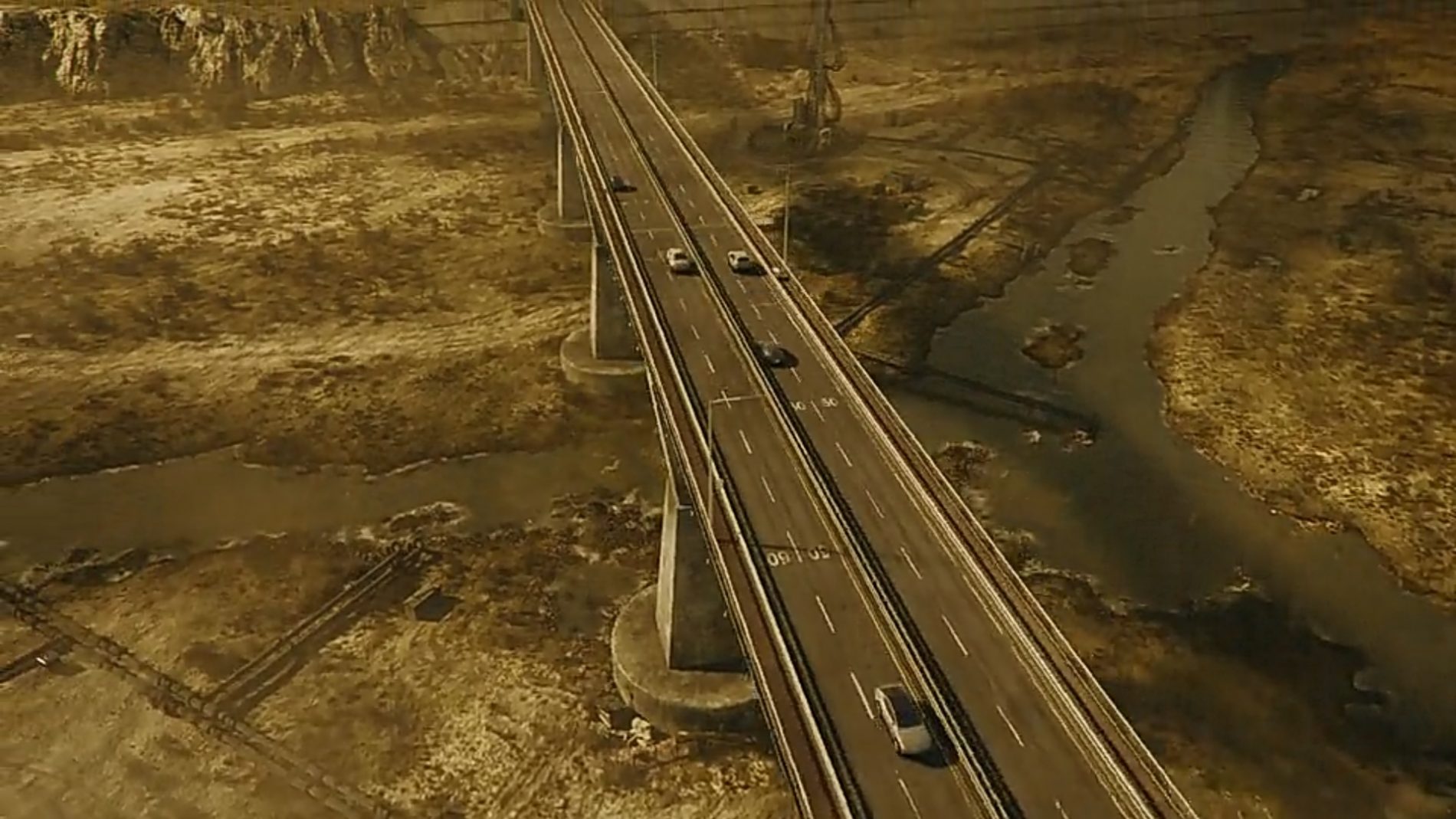
Song Ji-an is not the only one with personal stakes on the mission: capable exploration leader Captain Han Yoon-jae is desperate not to fail, as he needs the promotion (and higher water status) needed to fund his daughter’s surgery. (Gong Yoo seems to have cornered the market on the role of single-father-who-must-step-up, including Silenced/The Crucible and Train to Busan). His right-hand man, the by-the-book head of security Gong Soo-hyuk (a patrician Lee Moo-saeng of Designated Survivor), has a younger brother on the crew he wants to protect. The series’ tension is fuelled by the possible secrets held by others in the mission. Why is obnoxious Lee Gi-su (Choi Yong-woo of Prison Playbook) a last-minute replacement for the co-pilot? Why is former elite soldier Ryu Tae-seok (the superb Lee Joon of Bulgasal: Immortal Souls) really on the mission? What is Mr. Hwang—a one-time researcher on Balhae, played by Yu Seong-ju of Squid Game—trying to warn them about the water? Everything is suspicious in The Silent Sea, from the tattoo on Captain Han’s neck to the family photograph on Director Choi’s desk to what seems to be darting about in the ducts.
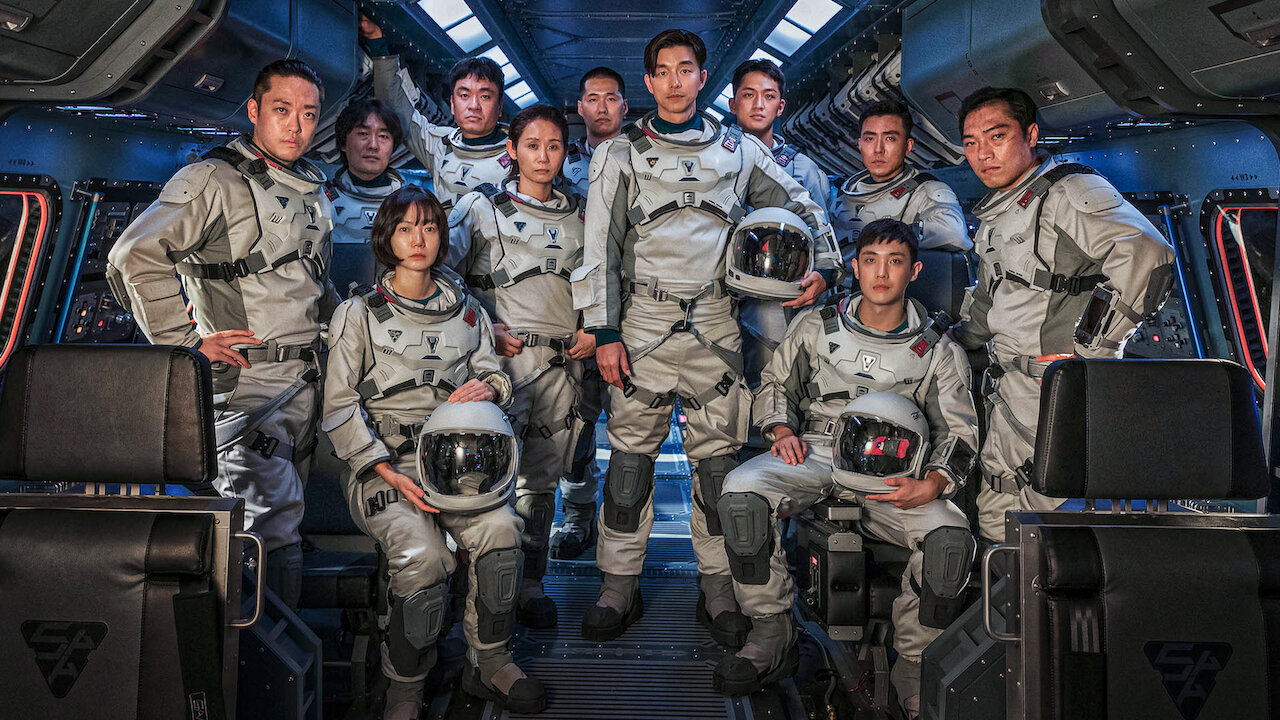
The stakes of the mission are the highest possible, and the Korean government is not the only party interested in whatever was being produced or collected at Balhae Station: mercenary corporations may have planted traitors in the crew. Tech malfunctions on the craft and at the station itself mean Captain Han is constantly risking his life to make rescues or fix something, desperate for the mission to succeed. Each episode is thrilling, rendered more eerie and anxious by composer Lee Ji-soo’s atmospheric score.
Before they leave for the moon, Song Ji-an tells Han—in her typically forthright way—that it’s unlikely more than 10 per cent of the crew will survive the mission. It’s too much of a spoiler to reveal whether she’s right or wrong, but The Silent Sea is not exactly Gilligan’s Island. One person doesn’t even make it from the crashed space craft to the station, seven kilometres away, and the dangling craft plummets into a gully, stranding the crew until a rescue ship can be summoned. When they arrive at Balhae station, perilously close to running out of oxygen, the first thing they encounter is the dead body of a mercenary who’s tried to break in. He seems to have died by drowning, Dr Hong Ga-young observes, their first clue that all is not as it seems in this abandoned place.
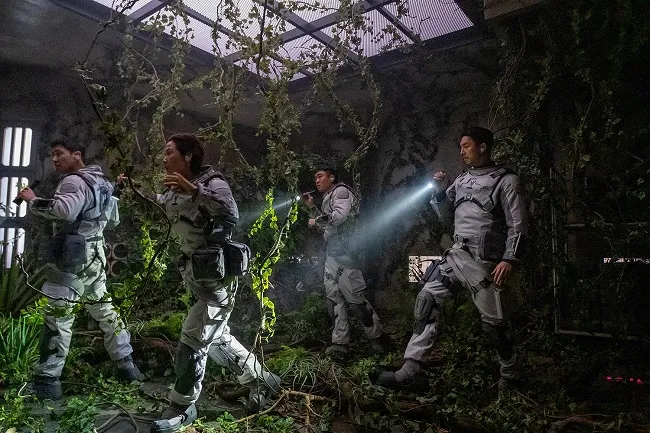
The sprawling space station is a fortress in a deeply inhospitable landscape: the greatest threat is from within. The series is ambitious in its moral complexity, and not too heavy-handed in making its metaphorical point: that humans are their own worst enemies, able to both destroy and create at high cost. Ji-an’s adored older sister was devoted to her work, believing the scientists of Balhae could save the world, but was that work both immoral and illegal? Everyone in the crew is trying to survive, and jocular Kim Sun (Lee Sung-wook of Good Manager) keeps reminding them all of the importance of returning home. But Ji-an’s personal quest is one of discovery, and little that she finds or witnesses will bring her peace. It may—however—bring a sequel.
